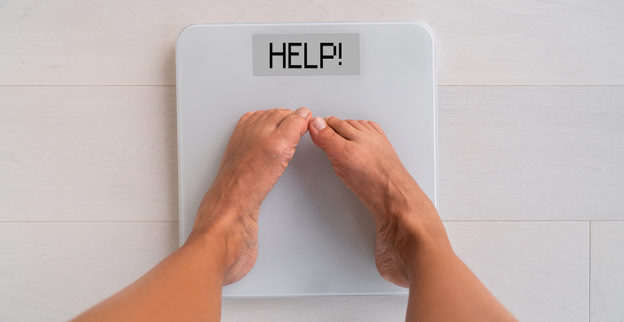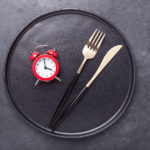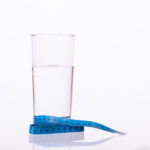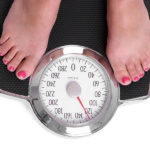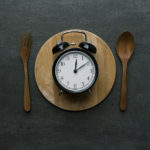By David Blyweiss, M.D., Advanced Natural Wellness
March 8, 2021
How do I lose weight?
It’s one of the most common questions I’m asked as a doctor. Really, there’s no cut and dry answer.
And when you consider than 72% of U.S. adults are overweight or obese, you know it’s a very important question to ask.[1]
Personally, I like Michael Pollan’s advice. Basically he says, “Eat food, mostly plants, not too much.”
But if you want me to be a little more specific about what type of diet and lifestyle to follow, we can dive into some specifics.
First off… you need to move.
I’m not even going to use the E-word. You know the one I mean. It’s been my experience that people hate the idea of going to a gym.
So, I’m going to make it simple. Just move every single day. The easiest way to get in your daily movement is tojust go for a walk. Get outside, enjoy the fresh air and get your blood pumping.
Once we’ve got that piece of advice out of the way, let’s talk about how to avoid obesity.
MD Exposes the Hidden Danger to Your Eyes

When your eyesight starts to fail, it's a real problem. Suddenly you can't go to the grocery store... you can't get to the doctor if you have an emergency... you can't meet your friends for dinner…
Your "regular" doctor doesn't have time to keep up with the latest research. And the same goes for eye doctors. They go to school to learn how to fit you for glasses and contacts, but have no way of preventing the damage and loss of eyesight that threatens your freedom and independence.
Let me show you something that explains a LOT about how your eyes work.
In my FREE Special Report, I'll show you a HUGE, untapped resource for your eyes that safely and naturally restores clear, effortless eyesight.
Click here to get started...
Obesity is linked to a long list of chronic diseases. They include diabetes, cardiovascular disease[2], and several cancers. People have a lot of trouble losing weight and then keeping it off. It’s estimated that only 1 in 5 people who lose weight are able to keep it off more than one year later.[3]
That’s why it’s important to pick the diet plan that you can stick with. Make it more of a lifestyle change rather than a quick fix.
These days, the two most popular diet options are either to use calorie restriction or to use intermittent fasting. Really, one is not better than the other. It just depends a bit on personal preference and will-power.
Calorie Restriction Works Well Unless You Go Overboard
Calorie restriction is probably the type of diet you are most familiar with. It means that you eat fewer calories each day by either limiting your portions or sticking to lower calorie foods.
Dropping your daily calorie intake by 500 calories a day isn’t really that hard when you think about it. Just a handful of M&M peanuts has 350 calories right there.
So, if you ate 500 less calories every day, after 30 days you’d be down 15,000 calories. Every pound of fat is about 3,000 calories, so that’s a 4-5 lb weight loss over one month.
The problem with calorie restriction is that people sometimes go overboard. They decide to be super strict and drop their intake to only 500-700 calories per day — rather than the recommended 2,000-2,500 calories. Your body notices this sudden drop and thinks that some sort of famine or emergency has taken hold.
As a result, your thyroid function begins to drop and you start burning less fat. You don’t use so much energy. A common way to describe this is simply a lower metabolism.
When you decide to end your strict diet, you’re left with a body that doesn’t want to burn as much fat. That’s why people who use this type of diet often gain it back, plus more!
Basically, your body is telling you that it won’t be fooled. It thinks another famine is right around the corner, so it holds onto fat reserves and makes losing weight more difficult.
On the flip side, people who use calorie restriction more reasonably might be okay. Some people lower their daily intake a smaller amount simply by cutting out certain foods.
These are the folks who say, “I’m sorry, I don’t eat pasta anymore.” Or, “I always skip the bread.” This type of eating plan is easier to stick to for many people and is sometimes the best option.
The World's Quickest Solution for Ending Prostate and Urinary Misery
This has recently been revealed to be one of the only real breakthroughs in prostate health.
The seeds of a strange fruit (sometimes called "Chinese Apples") hold powerful phytonutrients that are a revolution in prostate health.
In fact, UCLA and Veterans Administration research have now proved this to be true.
Not only that, but it may be the worlds quickest solution for ending prostate misery.
Simply stated, these phytonutrients represent a huge step beyond beta sitosterol, saw palmetto, and other phytosterols alone.
Simply click HERE if you want to have fast prostate relief...restful, uninterrupted sleep...no more constant "urges to go"...enhanced virility...and optimal prostate support for life.
Surprisingly, calorie restriction is also the only proven way to extend lifespan.[4]
Time Restricted Eating is Easier Than it Sounds
The second main eating pattern I’d like to discuss is one I personally follow. Unlike calorie restriction, you’re not restricting the number of calories you eat every day.
Instead, you’re simply restricting the amount of time you spend eating food. For example, I only spend about seven or eight hours every day eating food. The rest of the time I am fasting — only drinking clear liquids.
In a practice sense, this isn’t that hard to do. Instead of a morning meal, I just sip a hot beverage like green tea or black coffee. Then, I eat my first meal around 11am or noon. I’m sure to wrap up my dinner by 7pm.
Let me tell you what. I feel really energized with this eating pattern! The daily fasting periods give my body time to clean out the junk cells in my body. My gut is healthier. This eating pattern also leads to less heart aging, a less fatty liver and increased fat burning.[5]
Daily intermittent fasting like this also helps your body perform better, fight off disease and age more slowly.[6]
The only problem with this eating pattern is people’s ability to stick with it. If you’re used to your morning cereal or a cup of coffee with cream on the way to work, you’ll have to break that habit.
Plus, after your evening meal, you’ll need to lay off the snacks until bedtime. People sometimes start this eating pattern with good intentions but give up after a short period of time.
Consistency Wins the Race
Perhaps you’ve noticed a trend here. Both eating patterns don’t work well if you go too strict and then give up. Instead, both work better if you practice consistent habits.
That’s why I always recommend people follow the type of plan that will work best with their preferences. If you can’t imagine giving up your early morning or late night snacks, then calorie restriction might be better for you. Just remember to not go overboard. Start by cutting out specific foods that you know are doing you no good.
Or, if you can’t imagine giving up your favorite pastas, but you don’t mind eating within a narrower window of time, then time restricted eating might be best.
Both of these eating patterns are associated with increased autophagy.[7] This is your body’s process of clearing out the junk cells in your body so things hum along like they should.
Plus, regardless of which method you choose, you know I’m a huge fan of a rainbow diet. This includes mostly fruits and vegetables with a smaller amount of meat.
You’ll stay away from tons of dairy and be sure to choose produce that fills the entire spectrum of color.
Oh, and remember, don’t forget to move too!
[1] National Center for Health Statistics. Obesity and overweight. National Center for Health Statistics. 2016 [Internet] [cited 2020 April 17]. Available from: https://www.cdc.gov/nchs/fastats/obesity-overweight.htm.
[2] Scherer PE, Hill JA. Obesity, diabetes, and cardiovascular diseases: a compendium. Circ Res. 2016;118(11):1703–5.
[3] Wing RR, Phelan S. Long-term weight loss maintenance. Am J Clin Nutr. 2005;82:222S.
[4] What are the roles of calorie restriction and diet quality in promoting healthy longevity? Wanda Rizza, Nicola Veronesea, Luigi Fontana,
[5] Chaix, Amandine et al. “Time-Restricted Eating to Prevent and Manage Chronic Metabolic Diseases.” Annual review of nutrition vol. 39 (2019): 291-315. i:10.1146/annurev-nutr-082018-124320, Available Online: Https://www.ncbi.nlm.nih.gov/pmc/articles/PMC6703924/
[6] Anton, Stephen D et al. “Flipping the Metabolic Switch: Understanding and Applying the Health Benefits of Fasting.” Obesity (Silver Spring, Md.) vol. 26,2 (2018): 254-268. doi:10.1002/oby.22065, Available Online: https://www.ncbi.nlm.nih.gov/pmc/articles/PMC5783752/
[7] Li M, et al. Crosstalk between Autophagy and Apoptosis: Potential and Emerging Therapeutic Targets for Cardiac Diseases. Int J Mol Sci. 2016 Mar 3;17(3):332.

